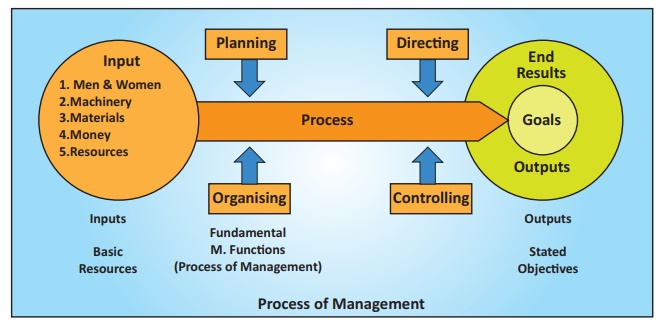Mastering General Management: Advanced Strategies for Seasoned Executives
Table of Contents

- jaro education
- 1, March 2024
- 2:00 pm
General management is a broad and complex field that requires a combination of functional expertise, strategic vision, and leadership skills. For seasoned executives who aspire to take on higher-level roles or lead their own organizations, mastering general management is essential to achieving success in today’s competitive and dynamic business environment. However, general management is not a static or fixed discipline; it evolves constantly with the changing needs and challenges of the market, the customers, and the stakeholders. Therefore, seasoned executives need to update and refine their general management skills regularly, and learn from the best practices and innovations of their peers and industry leaders.
This blog aims to provide a comprehensive and practical guide for seasoned executives who want to master general management and take their careers to the next level.
What is General Management?
General management is a versatile field that spans across various industries. Individuals in general management roles are responsible for supervising employees and overseeing the day-to-day operations within a specific branch or department.
For example, consider a retail store with multiple locations in your area. While there may be assistant managers or supervisors at each location, there is likely a general manager who is in charge of everything at that particular store. This general manager supervises all the employees in the store and reports to the regional or corporate executives of the company.
When exploring job opportunities in general management, it’s beneficial to be aware of different job titles and roles associated with them. Two commonly used titles that are often interchangeable with general manager include:
- Operations Manager : In this role, you are responsible for overseeing the daily operations of a variety of establishments, such as stores, restaurants, hotels, factories, and more.
- Branch Manager : As a branch manager, your role involves managing and supervising a specific branch or location for a business with multiple locations across a broader area. This title is typically used in larger companies.
Understanding these roles can be helpful when searching for jobs in the general management field, providing clarity on the different responsibilities associated with each title.

*brainkart.com
Importance of General Management
General management involves overseeing and coordinating the activities of a business or organization. It’s the responsibility of general managers to make sure that the organization achieves its goals and uses resources efficiently. This is crucial for several reasons:
- Achieving Group Goals : General management helps in reaching collective goals by bringing together the efforts of different individuals and departments towards a shared vision.
- Optimizing Resource Use : It ensures the best use of resources by choosing the most effective options and avoiding unnecessary waste and duplication.
- Establishing Organizational Structure : General management creates a solid organizational structure by defining the roles, responsibilities, and authority of each member of the organization.
- Adapting to Change : It adjusts to the changing environment by keeping an eye on external and internal factors, making necessary changes to stay effective and efficient.
- Enhancing Social Prosperity : General management contributes to the well-being of society by providing quality products and services, creating job opportunities, and contributing to social welfare.
Thus, general management is a broad field that requires a mix of skills, including leadership, strategic thinking, problem-solving, communication, and technical knowledge. General managers can work in various industries like manufacturing, retail, hospitality, education, healthcare, and more. You can learn all the in-demand skills required to become a new-age manager with the Accelerated General Management Program IIM Ahmedabad. It strives to enhance professionals’ skills in today’s dynamic business environment. The course features engaging coursework that incorporates technology and leading management practices to cultivate effective tools and techniques.
What is the General Management Process?
The general management process is a series of steps designed to ensure the smooth operation of business activities. It comprises four crucial functions: planning, organizing, directing, and controlling. These functions serve as foundational elements for managers to attain their objectives, coordinate resources, lead teams effectively, and monitor activities. Let’s explore each function more thoroughly:
- Planning : Think of planning as the process of determining what needs to be done, when, who will be responsible, and the estimated costs involved. It’s akin to creating a roadmap to achieve goals, which includes developing intelligent strategies that align with the needs of everyone involved, such as customers.
- Organizing: Organizing involves assembling the right individuals into appropriate teams based on their skills and knowledge. This ensures seamless collaboration among team members by providing them with the necessary tools and resources to perform their duties proficiently.
- Directing : In the directing part of general management, managers play the role of coaches, inspiring their teams to achieve business goals. This function emphasizes leadership, motivation, supervision, and communication to enhance the efficiency of employees in carrying out their tasks.
- Controlling : Controlling is akin to maintaining oversight. It entails measuring achievements against established standards and taking corrective actions if necessary. This process enables managers to assess the organization’s performance and ensure it stays on course to meet its objectives.
Skills Required in the Field of General Management
The skills required for a general manager can vary depending on the specific job and industry. For instance, if you’re a general manager in a restaurant, you’ll need experience and knowledge of how a restaurant operates. Here are some key skills necessary for success in a general manager role:
Leadership
General managers are leaders. You’ll be in charge of a group of employees, making sure they stay focused on their tasks, helping them with any issues, and encouraging them to do their best at work. To improve your leadership skills, consider taking courses, volunteering, or joining professional organizations.
Multitasking
Overseeing the operations of your location involves handling various tasks. While your employees and assistant managers can take on some of these tasks, it’s your responsibility to ensure they are completed. You might be dealing with payroll, interacting with customers, creating schedules, and receiving information about new company policies simultaneously. The ability to prioritize and complete tasks is crucial.
Technical Skills
Basic computer skills are a must, and understanding software programs or point-of-sale (POS) systems is essential. Familiarity with social media, Microsoft Office, and email systems like Outlook can also be beneficial. Depending on your industry, you may need to operate other equipment, such as a cash register or a communications system.
Math Skills
Handling cash, overseeing finances and sales, working on payroll, and dealing with other financial information requires good math skills. Accuracy is essential in ensuring your financial responsibilities are carried out effectively.
Organizing Tasks
With numerous responsibilities each day, staying organized is key. Knowing where everything is, from office supplies to backup inventory, is crucial. Effective time management is also necessary to complete daily or weekly tasks efficiently.
Customer Service
Interaction with customers is substantial in a general manager role. While you may not serve them as frequently as your employees do, you may need to handle complaints or problems with a positive attitude. Implementing and adhering to customer service policies, if in place, is part of your job.
Problem-Solving
General managers deal with various challenges, from customer issues to employee problems. You’ll need to find replacements for absent employees, identify errors in bookkeeping, and address equipment malfunctions promptly. Quick and effective problem-solving is a crucial skill for general managers.
Self-Starter
A general manager must be a self-starter. While you may have superiors, they may not provide daily encouragement. Taking the initiative to keep operations running smoothly and staying motivated to give your best for the organization are essential aspects of the role.
Best Tools for Managers
There are numerous management tools available to enhance your work efficiency and boost productivity. Depending on your requirements and preferences, you might find certain tools more suitable than others. Here are five top-notch general management tools serving various purposes:
Project Management Software
Project management software is a helpful tool that assists in various aspects of project coordination. It aids in planning, scheduling, allocating resources, and handling changes. Additionally, it plays a crucial role in controlling costs, managing budgets, ensuring quality, and maintaining documentation.
Task Management Tools
Task management tools are designed to make organizing, prioritizing, and visualizing work easier. They are useful for individuals, teams, or businesses looking to stay well-organized and on top of their tasks.
CRM (Customer Relationship Management)
CRM is a versatile business management tool utilized for customer service, marketing, streamlining processes, and generating business reports. It provides instant access to vital information about the business, enhancing customer interactions.
Time Tracker
Time tracker tools are valuable for efficient time management. They allow users to log the time spent on different tasks throughout the day, helping in tracking productivity.
nTask
nTask is a workplace management software featuring a user-friendly interface. It offers a wide range of workplace management features, contributing to smoother and more organized operations.
Project Scope Document
A project scope document serves as a blueprint outlining the project’s objectives, goals, deliverables, tasks, and specific requirements. It provides a clear roadmap for project execution.
Time Management
Time management is a crucial skill involving the efficient allocation and use of time and resources. It plays a vital role in enhancing productivity and achieving goals.
Strategic Planning
While not a specific tool, strategic planning is a method for goal setting, strategy development, and action execution. This approach assists in aligning your vision, mission, and values with your objectives and available resources.
Conclusion
To sum it up, aiming for a general manager position is a top-notch achievement in the management field. It not only brings prestige and a hefty paycheck but also provides ongoing chances for both professional and personal growth. As discussed earlier, being a general manager involves handling complex tasks like organizing and planning all aspects of an organization, offering seasoned executives daily challenges that contribute significantly to their career advancement.
Beyond the workplace, a career in general management positively influences personal growth, helping individuals build and sustain healthy relationships. Mastering general management is more than a career milestone; it’s a transformative journey that goes beyond work, offering executives a well-rounded path to success and satisfaction.






